Categories
Our developers' blog is divided on several collectors themes or categories:
Tags
Use tags below to find a required article in the blog:
5 years
art
auction
Australia
award
bank
banknote
banknotes
Belarus
bill
bills
Books
Brazil
Canada
cars
cat
celebrity
China
coin
coin stacking
coins
collage
collection
collector
collectors
competition
cool
CS
currency
Czech Republic
design
dollar
dollars
euro
face
flag
France
fun
funny
germany
hobby
India
Japan
king
library
medals
Mexico
microscope
mint
money
moneygami
museum
news
NYC
Olympic Games
paper money
penny
photo
Pound
review
riddle
rouble
Royal Mint
ruble
rubles
rupee
Russia
scotland
set
sightseeing
Soviet Union
stamp
stamps
Switzerland
travel
tree
Ukraine
United Kingdom
United States
video
vinyl
war
won
ww2
yuan
| Developers' Blog
March 18
2010
|
The Scots have a colorful (and tragic) history of fighting the domination of the English that ended, more or less, with the butchery that was the Battle of Culloden (16 April 1746), in which tired, hungry, and somewhat unenthusiastic Scotsmen armed with swords, at best, took on England's best, armed with bayonet-fixed firearms. So it was with some surprise that upon giving a 20 pound note with the likeness of the Queen on it to a cashier for my first purchase in Glasgow's Central train station (a local map book), the 10 pound note I got as change looked like this:
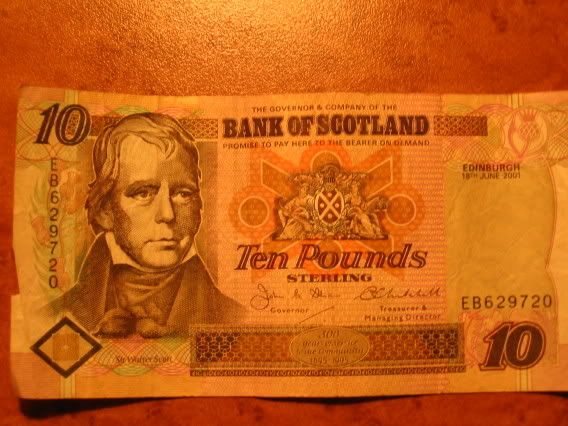
When the typical 10 pound note I see in London looks like this: Read more...
|
March 17
2010
|
Gaius Julius Caesar (Roman military and political leader who played a critical role in the transformation of the Roman Republic into the Roman Empire) was the first to print his own bust on a Roman minted coin:
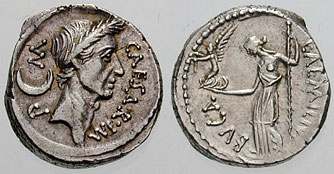
BTW. The Roman currency during most of the Roman Republic and the western half of the Roman Empire consisted of coins including the aureus (gold), the denarius (silver), the sestertius (bronze), the dupondius (bronze), and the as (copper). These were used from the middle of the third century BC until the middle of the third century A.D.
|
February 23
2010
|
Raising the Flag on Iwo Jima is a historic photograph taken on February 23, 1945, by Joe Rosenthal. It depicts five United States Marines and a U.S. Navy corpsman raising the flag of the United States atop Mount Suribachi during the Battle of Iwo Jima in World War II.
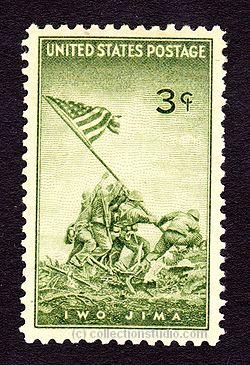
Read more...
|
February 19
2010
|
China command was always very strong on all Olympic games and we not sure that Chinese leader is happy or not for current medal counts (2 gold, 1 silver award and one bronze):
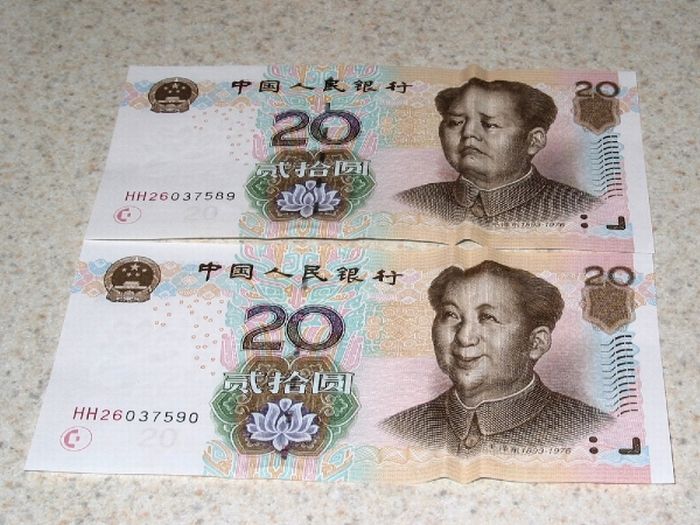
20 Chinese renminbi yuan (¥) banknote (CNY).
By the way, the distinction between yuan and renminbi is analogous to that between the pound and sterling. Renminbi (simplified Chinese: 人民币; traditional Chinese: 人民幣) translates as people's currency.
|
February 17
2010
|
While South Korea has won only four medals (3 gold, and one silver), North Korea has not won anything yet. I do not know whether happy Kim Jong Il the victories of one half of the Korean people, or not?!

Tow bones of 100 North Korean won (₩) (KPW) issued by the Central Bank of the Democratic People's Republic of Korea
|
February 15
2010
|
We continue Canadian subject which is so popular today. But we will be creative and we will show you how with the whole love to Canadian Dollars we improve their view:

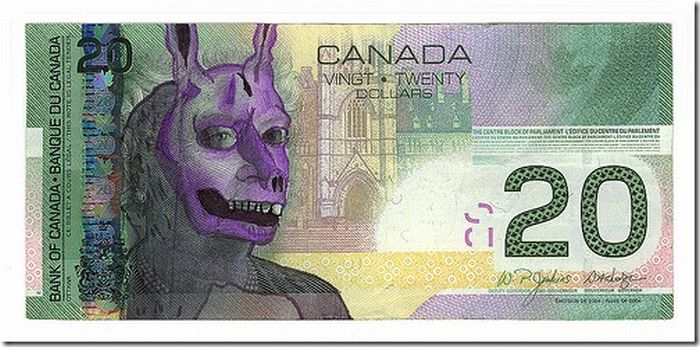
And another $20:

PS. We don't like defaced money, but we can't ignore this appearance.
|
February 12
2010
|
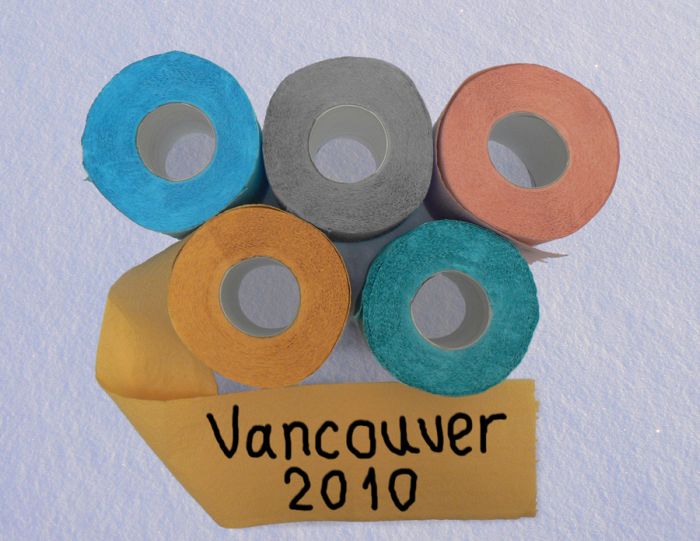
How do you think athletes can be considered as collectors? Bowls on the shelf, golden and bronze medals hanging on the wall … yes! Definitely - yes. So, let’s watch on TV the XXI Olympic Winter Collectors Games, which starts today - on February 12–28, 2010, in Vancouver, British Columbia, Canada, with some events held in the resort town of Whistler, British Columbia and in the Vancouver suburb of Richmond. The 2010 Winter Olympics will be the third Olympics hosted by Canada (1976 - Summer Olympics in Montreal, Quebec and the 1988 Winter Olympics in Calgary, Alberta).
PS. of course, we get involved not only with the success of collectors actions and sport performances on this Games who use CollectionStudio for tracking their invaluable awards but with all other guys!… 
|
February 10
2010
|
During archeological research in Pompeii a set of Roman tokens – spintria – was found, usually depicting sexual acts or symbols:

Spintriae from Pompeii
There were usually struck from brass or bronze, and were little smaller than a U.S. quarter. Spintriae may have been used to pay prostitute, who at times spoke a different language. While this is subject to argument, the numbers on them line up with known prices for Roman prostitutes. Some theorize them gaming tokens, and they may have been produced for only a short period, probably in the 1st century A.D.
Spintriae are a popular target of collecting and depending on the condition have a high auction price. Because of its relevance to the numismatic market, beware of huge modern forgery.
See more spintriae in details. Read more...
|
February 5
2010
|
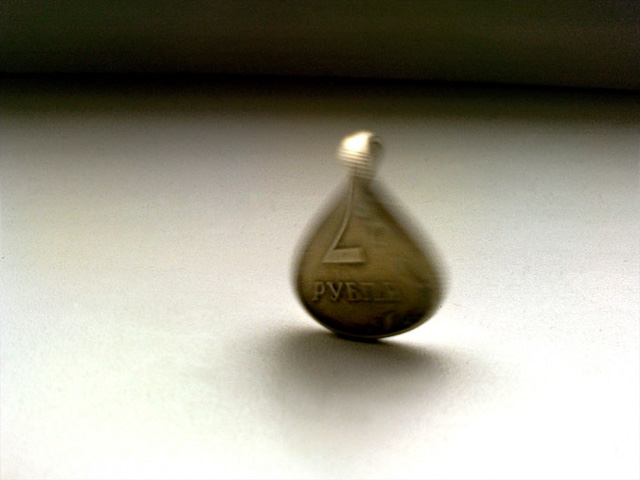
Russian 2 rubles coin.
Defects (or the effect - it is really like to see) is called Rolling shutter due to the slow speed of reading from the matrix and the lack of closure. Occurs now only in mobiles. SLRs such masterpieces can not.
Photo was taken using Sony Ericsson k770i.
|
|